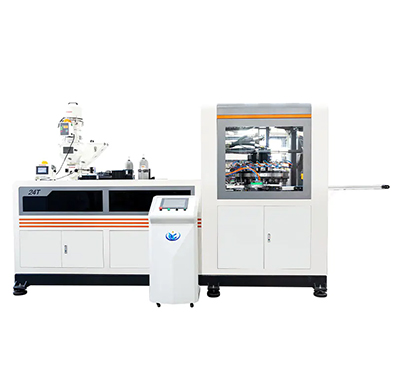chuangzhen@capping-machine.net

EN
In the competitive world of packaging production, bottle cap quality is a decisive factor for both product safety and consumer experience. Manufacturers across industries continue to refine production processes in search of consistent, reliable, and efficient solutions. Among these, the Cap Compression Moulding Machine has steadily gained recognition for its ability to deliver consistent results while maintaining operational efficiency.

A Cap Compression Moulding Machine operates on a principle distinct from conventional injection molding systems. Rather than injecting melted plastic into a cavity, this technology compresses pre-measured doses of plastic material directly into a mold under carefully controlled temperature and pressure. This approach ensures each cap is produced under consistent conditions, reducing material stress and variations.
One notable system applying this technology is the CZJX-24H Cap Compression Moulding Machine, capable of producing plastic bottle caps at a cycle time of under 3.3 seconds. This results in a high-speed output of up to 666 caps per minute. Such performance is achievable thanks to the compressing process’s multiple advantages — from lower material extrusion temperatures to highly accurate material dosing and repeatable molding environments. These advantages are particularly valuable when product quality and dimensional precision are key production priorities.
The Cap Compression Moulding Machine uses a 24-cavity compressing mold design, allowing for significant mass production capability without compromising individual cap quality. Each cavity within the mold ensures uniform shaping and weight distribution, which is essential for maintaining a high standard of product consistency across large production volumes. This design makes it possible to manage substantial output while meeting the demanding tolerances required in beverage, pharmaceutical, and personal care packaging markets.
Another important feature of the Cap Compression Moulding Machine is its integrated cooling-water mold system, designed to enhance heat dissipation efficiency. Compared to conventional designs, this system improves thermal regulation by approximately 35%. Consistent temperature management during production directly affects the final cap’s structural integrity and appearance, reducing issues such as shrinkage, warping, or surface defects.
Material dosing is another area where the Cap Compression Moulding Machine demonstrates reliable performance. The system incorporates a servo-driven dosing unit capable of achieving a material weight accuracy of ±0.01g. This precise control over material allocation ensures that each cap meets strict weight and dimension requirements, a critical factor for automated bottling lines where even minor deviations can disrupt assembly and packaging operations.
Energy efficiency is also addressed through the Cap Compression Moulding Machine’s adaptive hydraulic system. This feature helps reduce energy consumption by around 28% compared to traditional compression molding setups. Lower operational energy demands not only contribute to cost management but also align with modern production facilities' focus on sustainable and resource-conscious manufacturing practices.
When using a Cap Compression Moulding Machine, manufacturers benefit from consistent repeatability, an essential attribute in maintaining stable product quality over extended production runs. Because the process involves compressing plastic at lower extrusion temperatures, the resulting caps experience reduced material stress and a more uniform molecular structure. This consistency helps achieve dimensional stability and weight control compared to alternative production methods.
A major advantage of the Cap Compression Moulding Machine lies in its ability to maintain tight control over critical process variables. Parameters such as temperature, pressure, and material feed rate are continuously monitored and adjusted to ensure ideal performance. This level of control reduces defects and reduces the need for frequent machine adjustments, making it easier to sustain uninterrupted high-volume production without sacrificing cap quality.
By integrating a Cap Compression Moulding Machine into their production lines, manufacturers also gain flexibility in cap design and customization. The modular mold design allows for relatively simple changes in cap specifications without requiring extensive system modifications. This versatility enables companies to respond efficiently to market demands for new cap styles, sizes, and functional features.
Copyright © Taizhou Chuangzhen Machinery Manufacturing Co., Ltd. All Rights Reserved.
